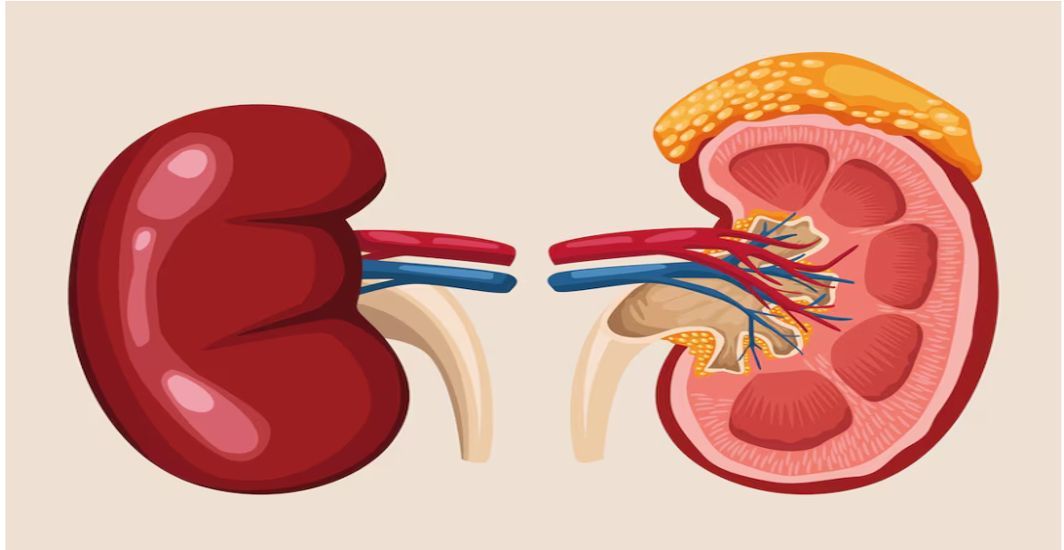Diabetes Management
Papaya and Diabetes: Its Role and Nutritional Value
2 min read
By Apollo 24|7, Published on - 27 May 2024
Share this article
0
0 like
.jpg?tr=q-80)
Diabetes management is no easy feat, but incorporating certain fruits into your diet can make a significant difference. One such beneficial fruit is the papaya. With its high fibre content and low glycemic index (GI), papaya plays a supportive role in managing blood sugar levels.
Papaya's Impact on Blood Sugar Levels
Controlling blood sugar levels is a priority for individuals managing diabetes. For this, the GI—a measure of how quickly a food can raise blood sugar levels—is crucial.
Papaya, with a GI of 60, does not cause a rapid rise in blood sugar levels, making it a suitable choice for those with diabetes. Additionally, its high fibre content and enzymes like papain and chymopapain aid in breaking down proteins and fats into easily digestible forms.
Incorporating Papaya Into Your Diet
Adopting a balanced meal plan is key to managing diabetes. Including papaya can be beneficial if consumed in moderation.
Ideally, one cup of fresh papaya per day is an appropriate serving of 100 g without causing any significant rise in blood sugar levels. It is also advisable to consume papaya as an afternoon snack rather than indulging in large quantities at once.
The Nutritional Profile of Papaya
Papaya 100 g provides approximately 39 calories and an array of essential nutrients:
- Carbohydrates: 9.81 grams
- Protein: 0.61 gram
- Fat: 0.14 gram
- Dietary fibre: 1.8 grams
- Potassium: 257 milligrams
- Vitamin C: 60.9 mg
- Magnesium: 21 milligrams
- Calcium: 20 milligrams
These nutrients make papaya a comprehensive package for diabetes management, offering vitamins, minerals and fibre that not only aid in maintaining blood sugar balance but also contribute to overall health.
To sum up, papaya can be a beneficial addition to a diabetic diet. Its key nutrients and low GI make it a fruit you can enjoy without worrying about sudden sugar spikes. However, remember that each person's body reacts differently. Hence, always monitor your blood sugar levels and consult with your doctor if you're unsure.
With mindful eating and regular tracking of your health, managing diabetes can become an achievable goal.
Diabetes Management
Consult Top Diabetologists
View AllLeave Comment
Recommended for you

Diabetes Management
Best Kidney Health Tips for Diabetics
For diabetics, safeguarding kidney health is crucial. Adopting a kidney-friendly diet, regularly monitoring blood glucose levels, sticking to medication regimens, and making healthy lifestyle changes can all aid in kidney health management. Consider enrolling in a comprehensive programme like Apollo Super 6 that offers support and guidance in managing diabetes and maintaining overall health.

Diabetes Management
Numbness and Tingling: A Sign of Diabetes?
Numbness and tingling in the extremities can be an early warning sign of diabetes. Spiked blood sugar levels can damage nerves, leading to a condition called diabetic neuropathy. It often affects the feet and hands, causing discomfort or loss of sensation. Regular blood sugar monitoring and proper diabetes management are essential in preventing and managing diabetic neuropathy. If you experience these symptoms, consult a healthcare professional for timely diagnosis and treatment to avoid potential complications.
.jpg?tr=q-80)
Diabetes Management
Effective Treatments for Diabetic Neuropathy in the Feet
Diabetic neuropathy in feet doesn't have to rule your life. You can effectively manage this condition with the right medical treatments, lifestyle changes, and preventive measures. Remember, individualised care is paramount, and enrolling in a supportive program like Apollo Super 6 can make your journey toward managing diabetes less daunting.
Subscribe
Sign up for our free Health Library Daily Newsletter
Get doctor-approved health tips, news, and more.
Visual Stories

8 Fruits That are Incredibly Healthy for Diabetes
Tap to continue exploring
Recommended for you

Diabetes Management
Best Kidney Health Tips for Diabetics
For diabetics, safeguarding kidney health is crucial. Adopting a kidney-friendly diet, regularly monitoring blood glucose levels, sticking to medication regimens, and making healthy lifestyle changes can all aid in kidney health management. Consider enrolling in a comprehensive programme like Apollo Super 6 that offers support and guidance in managing diabetes and maintaining overall health.

Diabetes Management
Numbness and Tingling: A Sign of Diabetes?
Numbness and tingling in the extremities can be an early warning sign of diabetes. Spiked blood sugar levels can damage nerves, leading to a condition called diabetic neuropathy. It often affects the feet and hands, causing discomfort or loss of sensation. Regular blood sugar monitoring and proper diabetes management are essential in preventing and managing diabetic neuropathy. If you experience these symptoms, consult a healthcare professional for timely diagnosis and treatment to avoid potential complications.
.jpg?tr=q-80)
Diabetes Management
Effective Treatments for Diabetic Neuropathy in the Feet
Diabetic neuropathy in feet doesn't have to rule your life. You can effectively manage this condition with the right medical treatments, lifestyle changes, and preventive measures. Remember, individualised care is paramount, and enrolling in a supportive program like Apollo Super 6 can make your journey toward managing diabetes less daunting.
